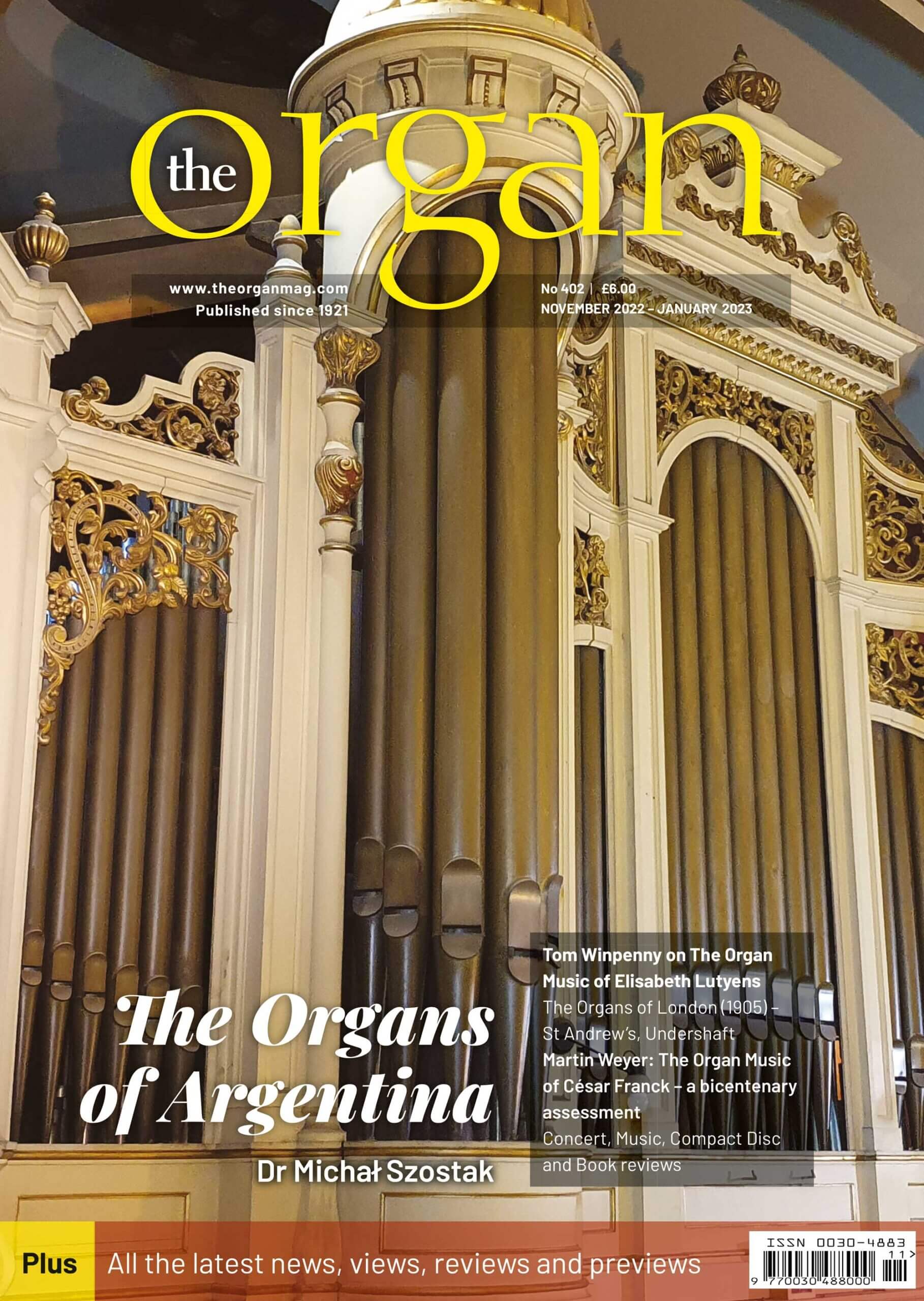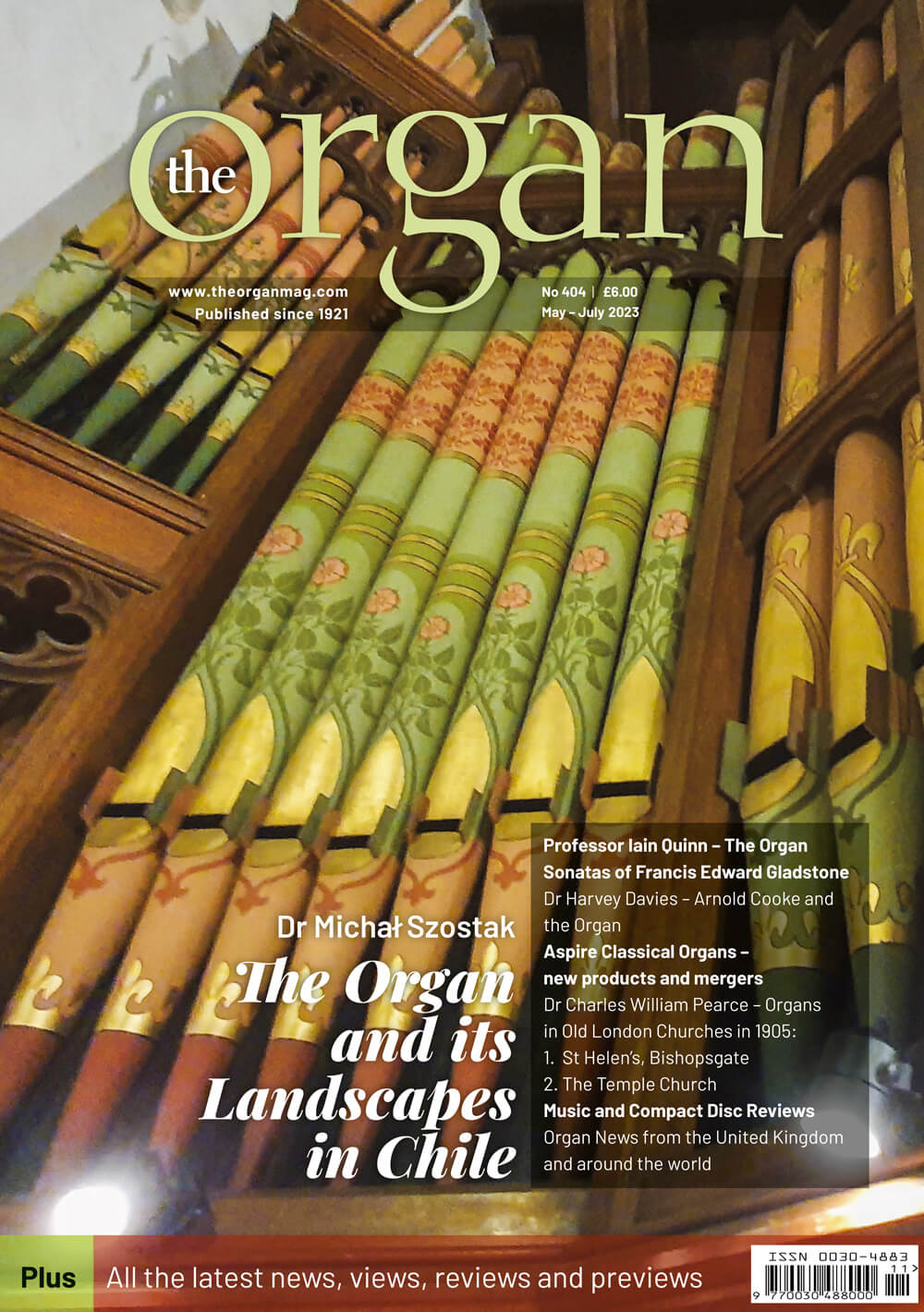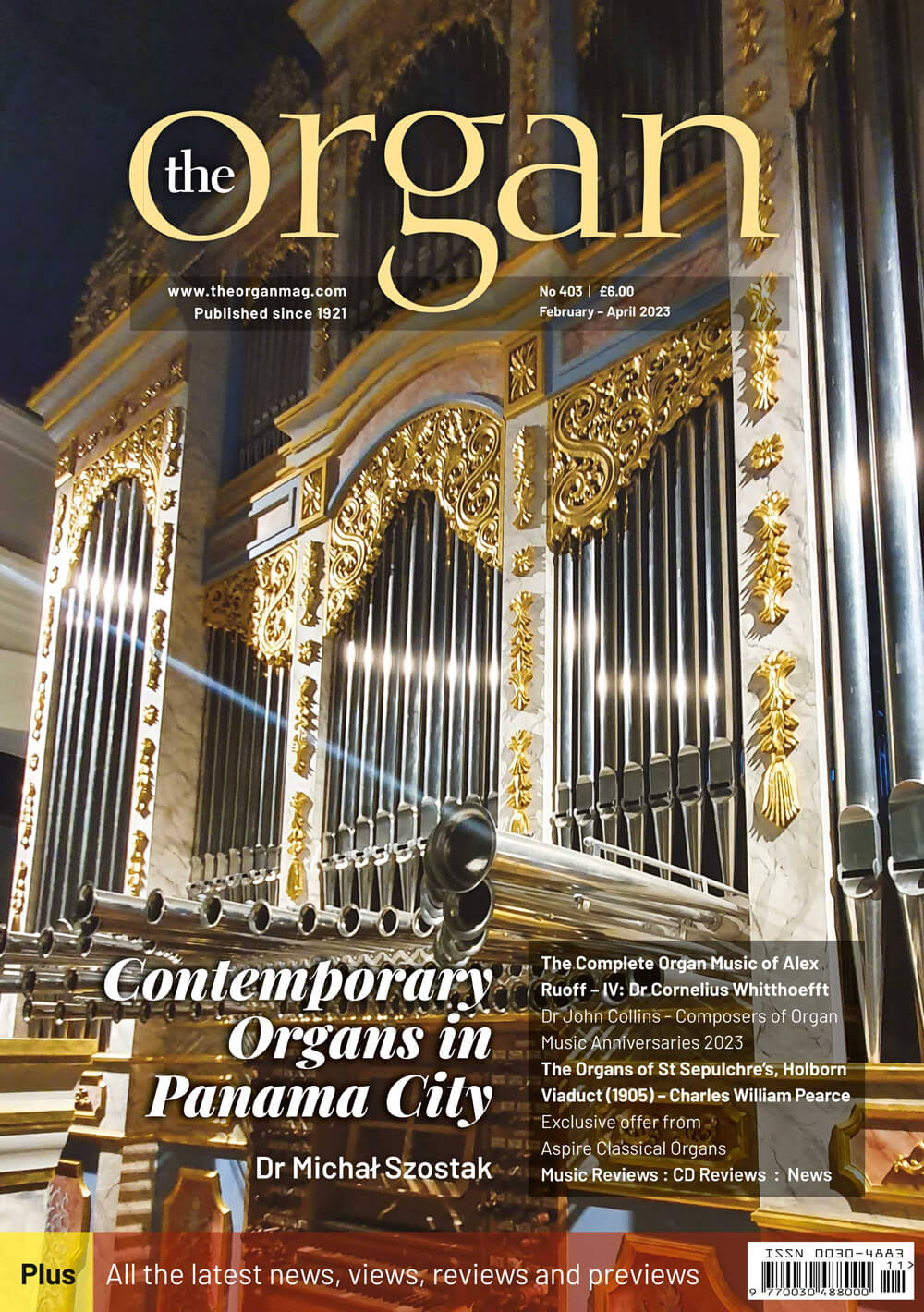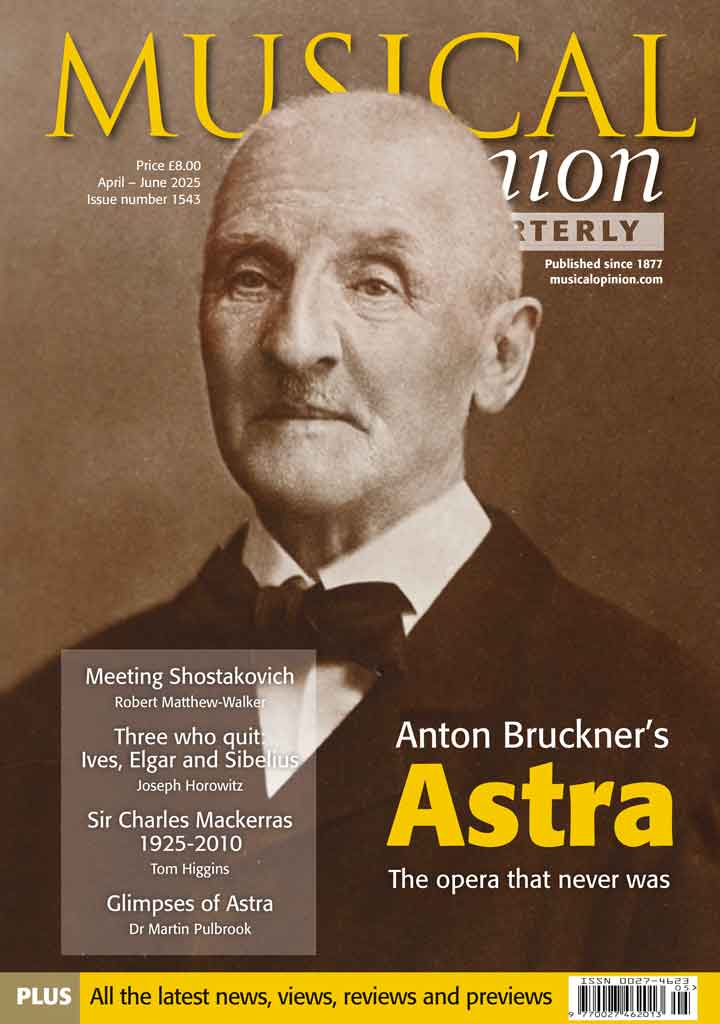

Current Issue
Previous Issues
Spring 2025. Issue 1541
Winter 2024. 1540
Autumn 2024. 1539
Summer 2024. 1539
Spring 2024. 1538
Winter 2023. 1537
Autumn 2023. 1536
Summer 2023. 1535.
Spring 2023. 1534.
Autumn 2022. 1532.
Summer 2022. 531.
Following the dispicable and illegal invasion of Ukraine, the Summer 2022 edition of Musical Opinion carries a large article about Sergei Prokofiev, arguably its most famous composer along with an overview of the Ukrainian classical music scene over the last one...
Spring 2022. 1530.
Winter 2021. 1529.
Autumn 2021. 1528.
Summer 2021. 1527.
Spring 2021. 1526.
Winter 2020. 1525.
Autumn 2020. 1524.
Summer 2020. 1523.
Spring 2020. 1522.
Explore By Topic
Winter 2022. 1533.
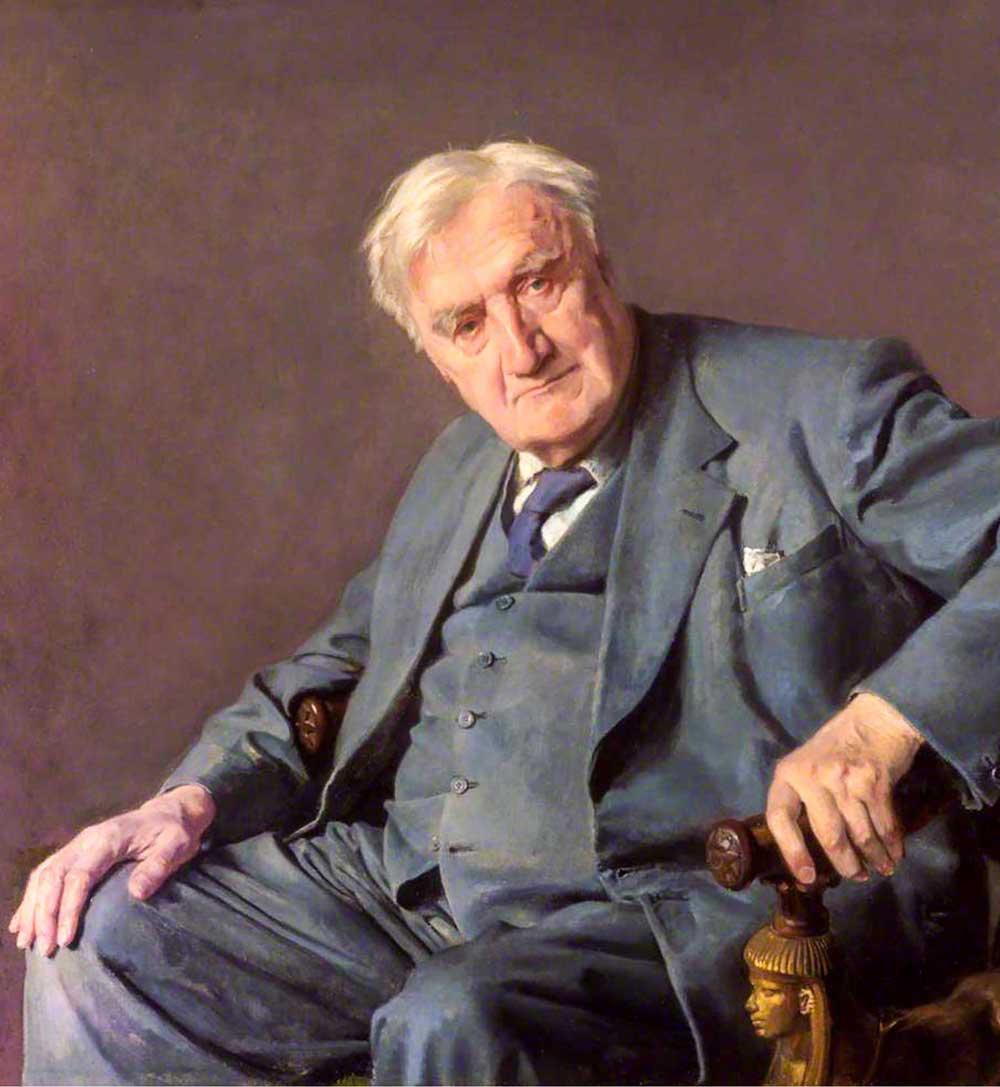
The Vaughan Williams Legacy – I: The Land with Music
Philip Spratley and David Occomore explain the composer’s initial contacts with English folk music
In 2015, there were celebrations for the 150th anniversary of the birth of Jan Sibelius. Yet there was nobody alive who could remember first performances of his later works, as from 1925, of course, he produced little or nothing. With Vaughan Williams, the situation is the opposite, and there will be many in their late seventies or early eighties who will remember the birth of works such as symphonies 6-9, music for the coronation of Queen Elizabeth ll, the concertos for tuba and harmonica, to name but a few. Approaching the age of 86, he was still working hard, but the beginning of his career had been a struggle to find himself and create an individual voice.
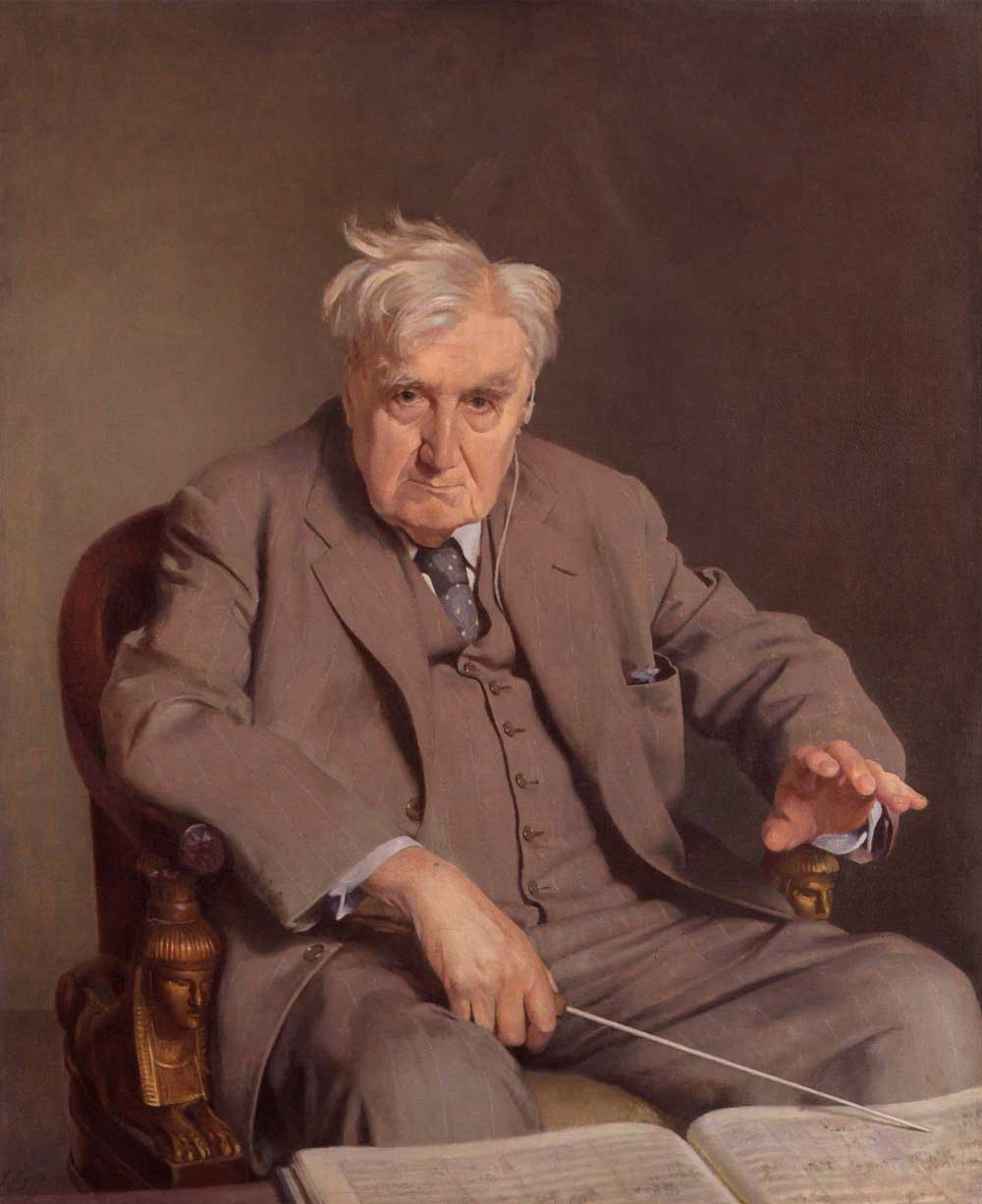
The Vaughan Williams Legacy II: The Story of Albion Records
John Francis outlines the background and development of a unique recording undertaking
The Ralph Vaughan Williams Society was formed in 1994 and has been active in promoting performances and recordings. Richard Hickox was a good friend and collaborator, and made a number of world premiere recordings for Chandos after that date, including The Pilgrim Pavement (1998), Norfolk Rhapsody No. 2 (2002), On Christmas Night (2005) and, most importantly, The Poisoned Kiss (2003) – Vaughan Williams’s comic opera, the last of the operas to be recorded. Other important first recordings in this period included film scores and the early song cycle Willow-Wood (2005). We had hoped that Naxos would follow Willow-Wood with further unrecorded works, but there was a change of heart.
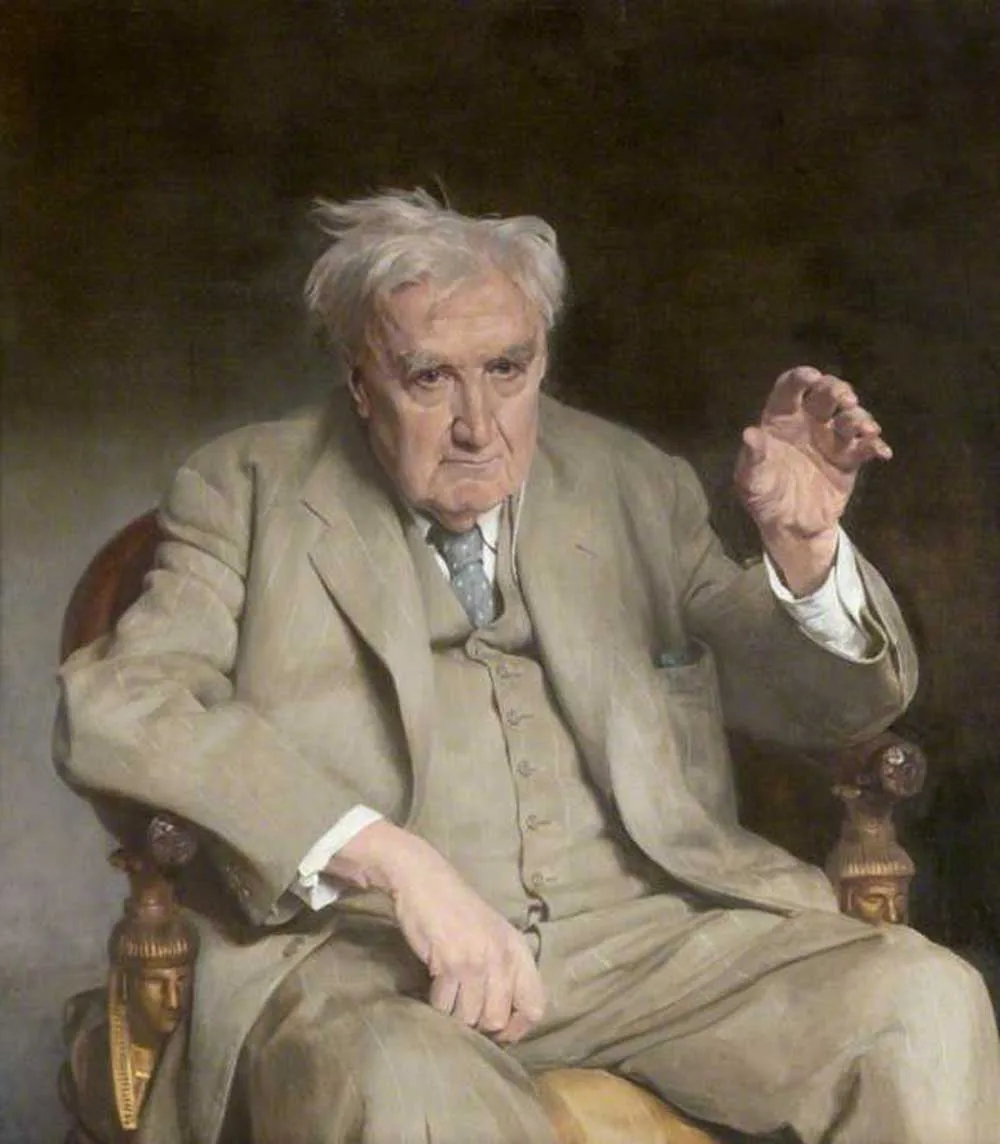
The Vaughan Williams Legacy III: Portraits of a Mind
Ian Venables writes on his new song cycle for Tenor, String Quartet and Piano, opus 54, commissioned by the RVW Society to celebrate the Vaughan Williams 150th Anniversary
The music of Vaughan Williams has been a constant companion throughout my life and so I was especially delighted when the Ralph Vaughan Williams Society offered me a commission to write a work to commemorate the 150th anniversary of the composer’s birth. The commissioners were generous in giving me the freedom to decide what kind of work I would like to compose and I immediately suggested a chamber song cycle. Over the past twenty years I have written many cycles with different instrumental combinations but only once have I composed a cycle for piano quintet and tenor: ‘Songs of Eternity and Sorrow’ based on poems by A.E.Housman and commissioned by Finzi Friends’ in 2004. Whilst I was composing this work I was mindful of RVW’s masterpiece ‘On Wenlock Edge’. Indeed, it is this work that in my opinion, put the chamber song cycle on the map here in England: composers such as Ivor Gurney and Warlock would later add to this wonderful genre.

Future Music: Silicon, Artificial Intelligence and Classical Music
Robert Laidlow
For the past four years, I have been investigating the intersection between artificial intelligence (AI) and the symphony orchestra. This has resulted in my composition Silicon (2022) for symphony orchestra and artificial intelligence, which I have written for the BBC Philharmonic, who have been my partners throughout this process alongside PRiSM (the centre for Practice & Research in Science & Music).
Since there are so many definitions of AI, I will provide an explanation of how the term is meant here. In short, AI is computer code that can learn how to complete certain tasks on its own. It’s used everywhere in our lives behind the scenes, from satellite navigation to targeted advertising and medical research. It’s also increasingly used in the arts, including music, to assist artists or even fully automate certain tasks. It doesn’t refer to a sentient, conscious computer (yet), but to an algorithmic methodology that increasingly informs the way our society and infrastructure are organised, both online and offline.

